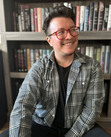Gabe Cole Novoa's Blog, page 32
September 12, 2016
Writability's First Meet Your CP Event!
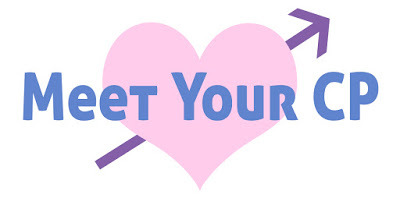 As I often talk about the importance of critique partners, one very common question I get is where to find them. While I've done two separate posts on where to find those elusive CPs, I've been debating a third option for a while and decided I'm just gonna go for it.
As I often talk about the importance of critique partners, one very common question I get is where to find them. While I've done two separate posts on where to find those elusive CPs, I've been debating a third option for a while and decided I'm just gonna go for it.So. I know many of you are looking for critique partners and now that I have a platform that can reach lots of people, I'd like to help by hosting Writability's first ever critique partner match event, Meet Your CP!
So, basically, if you're looking for a critique partner, or will be soon, follow these steps:
Fill out the following template and post it in the comments:
Genre(s)/Category(ies): [First, the category and genre of the MS you want critiqued, then what category/genres you usually write in and are willing to critique. i.e.: YA Science Fiction, MG Contemporary, Adult Fantasy, etc.]
Elevator pitch: [A short, usually one sentence pitch. i.e.: An uprising on a distant, alien planet threatens the reign of a teen, alien queen.]
First paragraph: [Pretty self-explanatory.]
What you're looking for with a CP: [Long term CP? Just need a CP for this project? How often do you anticipate trading? etc.]
Your writing background: [Is this your first manuscript? Fifth? Are you agented/unagented? Any relevant info can go here.]
Contact info: [E-mail, Twitter handle, whatever]
Browse the comments and see if there's anyone you'd potentially be interested in working with. If so, contact them!
Do a critique partner trial. Trade a sample (I usually did first chapter) and while you're critiquing, think about whether your trial partner's writing style/story would be a good fit for you. When you get their critique back, look over the notes, and consider whether their critiquing style works well for you. If yes, yay! If not, that's totally fine too—you are both 100% allowed to say, "Thanks for your feedback! I don't think we're going to be a good fit, but I appreciate your input and wish you all the best." No hard feelings, no questions asked—not all CP trials work and that's totally okay. :)
So that's it! Feel free to contact multiple people if you'd like—both because CP trials don't always work out, and because it's good to have multiple critique partners. I recommend having 2-3 CPs. I like having odd numbers myself, that way there's always a tie-breaker if/when your CPs disagree.
Good luck and have fun!
Twitter-sized bite:
Looking for a critique partner? Now you can find one at @Ava_Jae's first Meet Your CP event. (Click to tweet)





Published on September 12, 2016 04:00
September 9, 2016
On Identity and Visibility
 Photo credit: Steve A Johnson on FlickrWhen I first transferred to the university where I'd later complete my Bachelor's degree, I registered with the student disability center.
Photo credit: Steve A Johnson on FlickrWhen I first transferred to the university where I'd later complete my Bachelor's degree, I registered with the student disability center.Though this was the third college I'd attended, it was the first time I registered the campus center. But I knew I would need it, if only to get permission to use my iPad in all of my classes, regardless of class policy, because taking notes by hand I'd already learned had become too painful, thanks to rheumatoid arthritis.
Even as I was registered as a disabled student on campus, though, I still hesitated to call myself disabled.
I knew, logically, I was and am, but when you have a chronic illness, some days it doesn't feel like you're disabled enough to really say you're disabled. On days when I'm not flaring, I appear, for all intents and purposes, able-bodied. Sure, I can't write by hand and it's ridiculously easy to make my hand hurt, and sure, I learned the hard way I can't jog if I value my ability to walk and I can't stand or walk for prolonged periods anymore, but most of the time I look fine. I can walk without mobility aids, and I get through the day with more pain than most, yes, but I've gotten good at hiding it and being in low amounts of pain throughout the day has become normal for me.
So I hesitated. I rationalized that I don't feel disabled most of the time—which, to be honest, is only half-true. More like I didn't feel disabled when I chose not to think about the things I couldn't do anymore: jog, participate in my favorite sport (taekwondo), help support myself through a part-time job I'm good at (waitressing), write by hand, etc. More like a part of me felt as though it was somehow disingenuous to say that I'm disabled because...I don't know? What's the bar for "disabled enough"?
(Ignoring, of course, the flare that put my whole left arm out of commission for a week because moving it at all was excruciating. Ignoring, the multiple flares that left me limping to class as my knee swelled up under my jeans, and that time I presented my final in so much pain I was gritting my teeth. Ignoring, of course, the bad days, because they were rare and not all the time.)
Which was illogical—I knew that, and I certainly didn't hold anyone else to that standard when they said they were disabled. And yet, I couldn't stop myself from hesitating when I said the words myself.
Then August happened, and I had the worst health month of my life: three flares in three weeks in a row. Three times when for multiple days I felt like I was running on half my energy levels or less. Three times when I fought full-body exhaustion on top of increased pain, for multiple days at a time.
Then, last week, my family and I went to the zoo. It was a fun trip, and for the first half of the day or so I was fine. A little tired from a quick flare the night before, but all in all I felt okay.
And then my knee started hurting. This surprised me, because I haven't had my knee bother me in probably almost a year. But it was familiar, and I didn't think too much about it. I asked my family if we could sit, and we did for five minutes or so, and then I felt fine and we kept going.
And then my knee hurt again, and my hips joined the chorus. Both of them. This was completely new—I'd had issues with my hips before, but only when I was sitting. But now I was definitely flaring and as I walked, the pain and stiffness got worse. Much worse.
I gritted my teeth and tried to ignore it for a while. I was determined to enjoy myself and tried to distract my brain by focusing on the animals. I told myself I was out doing something fun and everything was fine and I didn't want to cut our day short. Besides, I reasoned, we were almost done. I could get through the last bit.
It wasn't long after that I realized the pain was distracting me from what we were seeing. That I could no longer focus on having a good time because my body hurt too much. That every step was a battle and for the first time in my life I wished I had a wheelchair.
That was scary. And sobering. And when I finally broke down and admitted to my family I needed to sit down because I couldn't walk the rest of the way without a break, a thought hit me very clearly: I really am disabled.
Because my chronic illness is largely invisible, I've struggled with how to incorporate it into my identity. Like so many things, it can feel strange to say "this is part of who I am" when other people can't see it. Visibility absolutely makes a difference and changes how the world interacts with you, but plenty goes on beneath the surface that others can't see, and it's one of the many reasons why people are to be believed when they say, "This is who I am."
Twitter-sized bite:
Author @Ava_Jae shares a personal post on chronic illness, invisibility, and identity. (Click to tweet)





Published on September 09, 2016 04:00
September 7, 2016
On Supporting Diversity
 Photo credit: Thomas Hawk on FlickrSo as sometimes happens when something negative goes viral, bookish Twitter took action on Monday and responded to an anti-diversity rant that had gone up the night before with a powerful message—that we as a community support diverse narratives.
Photo credit: Thomas Hawk on FlickrSo as sometimes happens when something negative goes viral, bookish Twitter took action on Monday and responded to an anti-diversity rant that had gone up the night before with a powerful message—that we as a community support diverse narratives.It began with an author asking people to raise their voices and support diversity and the marginalized in the process. The author later asked to become anonymous and people not connect them to the hashtag anymore, because the backlash against the positive hashtag that came out of it unfortunately brought loads of racists and hateful people into their mentions—another problem all on its own. The hashtag began as #IStandForDiversity, but later transitioned to #ISupportDiversity because the first hashtag was unintentional ableist, but important tweets were shared at both, so I'm going to share some here.
#ISupportDiversity because humanity's only way forward is in understanding each other, valuing each other, and listening.— RebeccaCoffindaffer (@callmebecks) September 5, 2016
#IStandForDiversity because I don't want to *search* for diverse books. I want shelves to reflect the world we live in.— Laura Silverman (@LJSilverman1) September 5, 2016
#IStandForDiversity because it shouldn't take someone 20+ years to find meaningful representation of themselves in a book.— Tara Sim (@EachStarAWorld) September 5, 2016
But also, #IStandForDiversity so kids like me who grew up in small town bubbles have a chance to see there's other lives out there.— Summer Heacock (@Fizzygrrl) September 5, 2016
#IStandforDiversity because without it we grow up believing there is no place for us in stories, on bookshelves, or in the world.— Anna-Marie McLemore (@LaAnnaMarie) September 5, 2016
#IStandForDiversity bc everyone deserves books that encourage them to love themselves for who they are, & to empathize & love others.— Beth Phelan (@beth_phelan) September 5, 2016
#IStandForDiversity bc marginalized adults shouldn’t have to say “I didn’t see myself in fiction until I was 20/30/40” or “I still haven’t.”— Mark O'Brien (@mobrienbooks) September 5, 2016
#ISupportDiversity because mirrors are as important as windows and doors. Because books with authentic rep can save and change lives.— Katherine Locke (@Bibliogato) September 5, 2016
#ISupportDiversity because every good thing in my life has come from embracing complexity & realizing the world is much bigger than just me.— Mike Jung (@Mike_Jung) September 5, 2016
#ISupportDiversity because there are still SO MANY incredible voices & stories that deserve to be out in the world saving lives.— Beth Phelan (@beth_phelan) September 5, 2016
PSA: Hashtagging and discourse are great and all, but the actual best way to advocate for diversity is to throw money at it— =KRUEGER THINGS= (@NotLikeFreddy) September 5, 2016
YES. If readers don't buy/support already existing diverse books? Publishers less apt to contract more. https://t.co/3XSJ3sOBWN— heidi r. kling✨ (@HeidiRKling) September 5, 2016
As Paul and Heidi said, one of the best ways to really support diverse books and marginalized authors is to buy books and request them at the library. So, of course, here are a couple book recommendation threads.
Michael Waters on diverse YA releasing soon.Sam Taylor's diverse book rec thread.Sam's second diverse book rec thread.Julie C. Dao's list of POC kidlit authors debuting in 2017.My #ownvoices book rec thread from August 30th. Marieke Nijkamp's thread full of diverse books giveaways ending on 9/9!Ashley Herring Blake's #ownvoices books giveaway ending on 9/13!
And, in conclusion:
Great way to support #OwnVoices books is to READ THEM. Talk about them. Review them. Buy them & request them from your library.— Ashley Herring Blake (@ashleyhblake) September 6, 2016
So there you have it. Support with your voices, and more importantly with your bought and requested books. Because representation is so, so important and we're just getting started.





Published on September 07, 2016 04:00
September 6, 2016
Vlog: How to Write a Book
YouTube asked, I answered. Today I'm vlogging about the (simplified) steps to writing a book.
RELATED LINKS:
Writing a Novel in 15 Steps: From Initial Idea to QueryingHow I Plot (vlog)On (Terrible) First Drafts (vlog)4 Fast Drafting Tips (vlog)On Writing the Perfect Project (vlog)How to Finish a WIP (vlog)On Editing (playlist)All the NaNoWriMo (playlist)
Twitter-sized bite:





RELATED LINKS:
Writing a Novel in 15 Steps: From Initial Idea to QueryingHow I Plot (vlog)On (Terrible) First Drafts (vlog)4 Fast Drafting Tips (vlog)On Writing the Perfect Project (vlog)How to Finish a WIP (vlog)On Editing (playlist)All the NaNoWriMo (playlist)
Twitter-sized bite:
Want to write a book but not sure where to start? Author @Ava_Jae vlogs about the simplified steps to writing a book. (Click to tweet)





Published on September 06, 2016 05:55
September 5, 2016
On (Not) Closing the Skill Gap
 Photo credit: RsmsToday I'm thinking about writing and how there's always more to learn. How there's a perception gap between the words that flow on the page when you're first drafting and the quality of words you want on the page as you go.
Photo credit: RsmsToday I'm thinking about writing and how there's always more to learn. How there's a perception gap between the words that flow on the page when you're first drafting and the quality of words you want on the page as you go.I'm thinking about the e-mails and comments I get about writers, especially new writers, paralyzed by their own perceived skill level. How they recognize that the words they're putting on the page aren't as good as they imagined—and how that realization can be paralyzing.
I'm thinking about how sometimes, it doesn't matter what words you put on the page, because they always feel not right. Not good. Not even remotely worth being proud of.
The truth is, this happens to everyone. With new writers, it often happens because the words they're writing don't come close to matching up the words they're reading, and they recognize that gap between what is publishable and what is not. With experienced writers it happens too, because after working on polished manuscripts for so long, it can be really, really hard to go back to those raw, uncut first draft words. It can be hard to remember those polished manuscripts didn't start off polished—it can feel like going back to step one.
It can also feel like taking the steps necessary to get to the end result is impossible.
The thing is, closing the skill gap completely is impossible—and it should be. Because once the gap is closed, once there isn't better writing to strive for, once there's no reason to push yourself because the words are good enough, you've stopped learning. You've plateaued.
Artists and creative types—and yes, that means writers—should never stop learning. It's kind of a great thing about art—you can't even reach a place where you have nothing more to learn, nothing new to try, no real way to push yourself. It means you can keep pushing harder, keep getting better, keep watching your art evolve and evolve and evolve. And it's wonderful—but some days, it's also hard.
This post isn't really a cure for anything, but I do want to say on those days you're struggling, the best thing you can do is keep getting words down. Keep reminding yourself that, in a way, it's a good thing that you recognize your writing isn't great from the get-go—because it means you recognize how you could continue to improve and push yourself. Because it means when time comes to revise, you'll be ready to go.
You'll never close the skill gap, not really. But you should never want to, either—because there will always be room for you to explore and grow and further develop your skills as a writer. And as hard as it is, it's good, too.
So get out there and keep writing.
Have you ever experienced the skill gap?
Twitter-sized bite:
On the gap between your writing and what you want it to be. (Click to tweet)





Published on September 05, 2016 04:00
September 2, 2016
Fall 2016 YA Books to Look Out For
So today is my first post of September 2016 and Fall 2016 YA books are IMMINENT. It's very exciting, because this bookish season is looking amazing and the only sad thing about it is I've run out of bookish gift cards but anyway. BOOKS.
In honor of September and kicking off some YA awesomeness, here are ten Fall 2016 YA books to look out for, ordered by release date.
 Photo credit: Goodreads
Photo credit: Goodreads
As I Descended by Robin Talley
September 6
As Talley put it, this is a queer Macbeth retelling, and I've already heard is super creepy and murdery and it sounds awesome. Even better—it'll be out next week. Also, that cover is gorgeous.
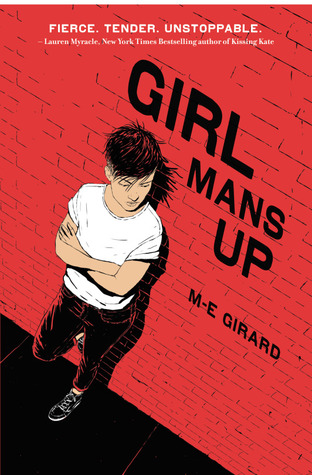 Photo credit: Goodreads
Photo credit: Goodreads
Girl Mans Up by M-E Girard
September 6
I've been very curious about this one, as we don't exactly have a whole lot of books out there with masculine-leaning AFAB protagonists. People who have read it so far have said there's a lot of nuanced gender identity stuff, so this is one to look out for!
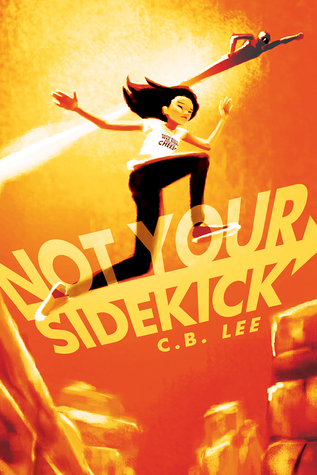 Photo credit: Goodreads
Photo credit: Goodreads
Not Your Sidekick by C.B. Lee
September 8
Comic with a girl-crushing-on-girl protag with a superhero lineage but no superpowers of her own? Who accidentally ends up the intern of a supervillain? SIGN ME UP. This book looks like a ton of fun and I definitely want to check it out when it releases soon!
 Photo credit: Goodreads
Photo credit: Goodreads
Crooked Kingdom by Leigh Bardugo
September 27
CROOKED KINGDOM IS ALMOST HERE! Six of Crows was definitely one of my favorite reads last year, and I'm super psyched to see how the duology ends. Can't wait to see more of the crew and get some closure on this amazing series.
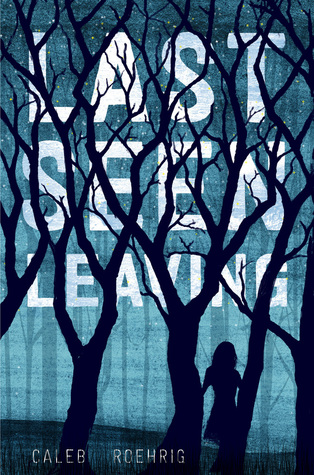 Photo credit: Goodreads
Photo credit: Goodreads
Last Seen Leaving by Caleb Roehrig
October 4
This book sounds so great! Boy's girlfriend disappears, and the secrets he's holding are connected to her disappearance, and it's dark and twisty and there's a coming out narrative involved and I need.
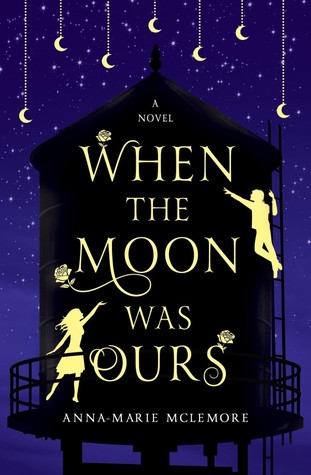 Photo credit: Goodreads
Photo credit: Goodreads
When the Moon Was Ours by Anna-Marie McLemore
October 4
This book has a lot of things you don't see all that often—two POC leads in a romance (a Latina protag and South East Asian love interest), some trans boy representation, and plus it's promising a magical realism spin with multicultural elements. I'm really excited about this book, and the #ownvoices representation involved (the author is Latina) and all in all, definitely looking forward to this one.
 Photo credit: Goodreads
Photo credit: Goodreads
Gemina by Jay Kristoff and Amie Kaufman
October 18
So this one's pretty obvious—Illuminae is one of my favorite reads of the year (and I'm counting it for this year, as technically I finished reading it right after New Years). I devoured that monster-sized book in like two days and am dying to see what happens next. I've been bracing myself for the inevitable body count and look forward to diving into the series again!
 Photo credit: Goodreads
Photo credit: Goodreads
A Darkly Beating Heart by Lindsay Smith
October 25
So I've been pretty psyched about this book since it was first announced because a dark, time-travel revenge fantasy that takes place in Japan sounds awesome. Then I learned the protagonist is bi and it got great reviews from trusted readers, including in-community readers, so now I'm extra excited. I'm definitely looking forward to Lindsay Smith's latest!
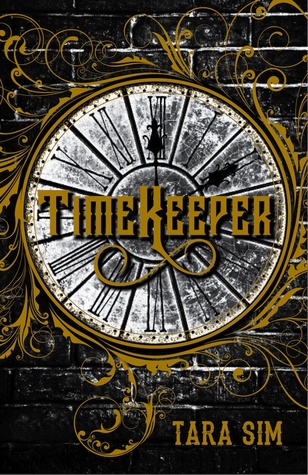 Photo credit: Goodreads
Photo credit: Goodreads
Timekeeper by Tara Sim
November 1
I've mentioned my excitement for Timekeeper on this blog several times and now it's almost here! Victorian London! Clock mechanic boy who alters time and falls for a clock spirit boy! I actually have an ARC now and will read as soon as I can because need.
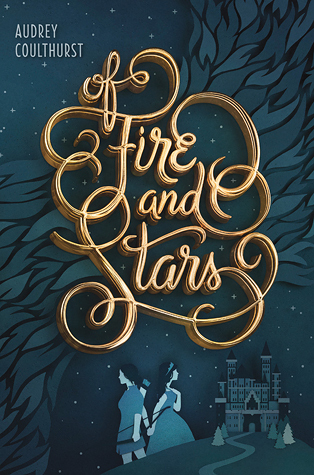 Photo credit: Goodreads
Photo credit: Goodreads
Of Fire and Stars by Audrey Coulthurst
November 22
Finally, I am so psyched for this fantasy—princess is engaged to handsome prince and falls for his sister. Plus magic and assassination and endangered kingdoms in the hands of princesses and this book sounds truly fantastic.
So that's just a sample of books to look out for this fall! What Fall 2016 YA are you looking forward to?
Twitter-sized bite:





In honor of September and kicking off some YA awesomeness, here are ten Fall 2016 YA books to look out for, ordered by release date.
 Photo credit: Goodreads
Photo credit: Goodreads
As I Descended by Robin Talley
September 6
As Talley put it, this is a queer Macbeth retelling, and I've already heard is super creepy and murdery and it sounds awesome. Even better—it'll be out next week. Also, that cover is gorgeous.
 Photo credit: Goodreads
Photo credit: GoodreadsGirl Mans Up by M-E Girard
September 6
I've been very curious about this one, as we don't exactly have a whole lot of books out there with masculine-leaning AFAB protagonists. People who have read it so far have said there's a lot of nuanced gender identity stuff, so this is one to look out for!
 Photo credit: Goodreads
Photo credit: GoodreadsNot Your Sidekick by C.B. Lee
September 8
Comic with a girl-crushing-on-girl protag with a superhero lineage but no superpowers of her own? Who accidentally ends up the intern of a supervillain? SIGN ME UP. This book looks like a ton of fun and I definitely want to check it out when it releases soon!
 Photo credit: Goodreads
Photo credit: GoodreadsCrooked Kingdom by Leigh Bardugo
September 27
CROOKED KINGDOM IS ALMOST HERE! Six of Crows was definitely one of my favorite reads last year, and I'm super psyched to see how the duology ends. Can't wait to see more of the crew and get some closure on this amazing series.
 Photo credit: Goodreads
Photo credit: Goodreads
Last Seen Leaving by Caleb Roehrig
October 4
This book sounds so great! Boy's girlfriend disappears, and the secrets he's holding are connected to her disappearance, and it's dark and twisty and there's a coming out narrative involved and I need.
 Photo credit: Goodreads
Photo credit: Goodreads
When the Moon Was Ours by Anna-Marie McLemore
October 4
This book has a lot of things you don't see all that often—two POC leads in a romance (a Latina protag and South East Asian love interest), some trans boy representation, and plus it's promising a magical realism spin with multicultural elements. I'm really excited about this book, and the #ownvoices representation involved (the author is Latina) and all in all, definitely looking forward to this one.
 Photo credit: Goodreads
Photo credit: GoodreadsGemina by Jay Kristoff and Amie Kaufman
October 18
So this one's pretty obvious—Illuminae is one of my favorite reads of the year (and I'm counting it for this year, as technically I finished reading it right after New Years). I devoured that monster-sized book in like two days and am dying to see what happens next. I've been bracing myself for the inevitable body count and look forward to diving into the series again!
 Photo credit: Goodreads
Photo credit: Goodreads
A Darkly Beating Heart by Lindsay Smith
October 25
So I've been pretty psyched about this book since it was first announced because a dark, time-travel revenge fantasy that takes place in Japan sounds awesome. Then I learned the protagonist is bi and it got great reviews from trusted readers, including in-community readers, so now I'm extra excited. I'm definitely looking forward to Lindsay Smith's latest!
 Photo credit: Goodreads
Photo credit: GoodreadsTimekeeper by Tara Sim
November 1
I've mentioned my excitement for Timekeeper on this blog several times and now it's almost here! Victorian London! Clock mechanic boy who alters time and falls for a clock spirit boy! I actually have an ARC now and will read as soon as I can because need.
 Photo credit: Goodreads
Photo credit: GoodreadsOf Fire and Stars by Audrey Coulthurst
November 22
Finally, I am so psyched for this fantasy—princess is engaged to handsome prince and falls for his sister. Plus magic and assassination and endangered kingdoms in the hands of princesses and this book sounds truly fantastic.
So that's just a sample of books to look out for this fall! What Fall 2016 YA are you looking forward to?
Twitter-sized bite:
Check out 10 Fall YA '16 books to look out for + a discussion—what Fall YA books are you excited for? (Click to tweet)





Published on September 02, 2016 04:00
August 31, 2016
On Book Binges
 Photo credit: bethanypetrik on FlickrSo it's the last day of August and last weekend I realized I was four books behind schedule in my reading challenge. I already mentioned last week why that was, but now I've sent off Into the Black to my CPs, so I'll have a little more time to read over the next two weeks than I did before. Which means, of course, trying to squeeze in a book binge.
Photo credit: bethanypetrik on FlickrSo it's the last day of August and last weekend I realized I was four books behind schedule in my reading challenge. I already mentioned last week why that was, but now I've sent off Into the Black to my CPs, so I'll have a little more time to read over the next two weeks than I did before. Which means, of course, trying to squeeze in a book binge.In the past, when I've fallen behind on my reading, I'd take a day to do a reading binge by selecting the shortest books in my physical To Read bookshelf, sitting down, and reading it all in a sitting or two in the same day. That worked marvelously and was really fun to do—until I sort of ran out of short books I could do this with. Oops!
So this time I started doing something a little different. I read a lot of the book I'm in the middle of (Skandal by Lindsay Smith), but I also headed over to my library's website to see what Middle Grade books they have that I could pick up, because I've been wanting to read more Middle Grade anyway and they tend to be shorter than the YA books waiting for me on my To Read shelf. This was a great plan and everything, until I learned my library had just paired up with Hoopla, which is a service that provides digital comic books, e-books, music and movies to library patrons.
And I was delighted. Because I could dive into the graphic novels and comics I'd been wanting to read anyway without leaving the house (win!).
So that's what I'm doing now. I read two volumes of The Wicked + The Divine which was interesting, but after reading poor reviews for the third volume I decided to move on to Rat Queens which I am loving. I wanted to read Amulet and Ms. Marvel but it doesn't look like Hoopla has them right now, so I'll save those for another time. But pretty much all of my graphic novel reads on Hoopla were recommended by readers here on Writability because you guys rock, so thank you. I read three graphic novels in 36 hours and want to read another volume of Rat Queens today, so I'll definitely be back on target in no time.
But I'm curious how you guys book binge, if you've ever book binged, because I am happy to learn your book binging secrets and tips. So throw them at me!
What book binging tips do you have?
Twitter-sized bite:
What strategies do you use for a book binge? Join the discussion on @Ava_Jae's blog. (Click to tweet)





Published on August 31, 2016 04:00
August 30, 2016
Vlog: How to Write Without Filtering
Want to make your writing feel more authentic and immediate? Today I'm sharing some tips on writing without filtering.
RELATED LINKS:
Nuts and Bolts: "Thought" Verbs by Chuck Palahniuk The Emotion Thesaurus by Angela Ackerman and Becca PuglisiHow to Write Emotion EffectivelyHow to (and Why You Should) Eliminate Filter Phrases from Your Writing
Do you use these tips while revising?
Twitter-sized bite:





RELATED LINKS:
Nuts and Bolts: "Thought" Verbs by Chuck Palahniuk The Emotion Thesaurus by Angela Ackerman and Becca PuglisiHow to Write Emotion EffectivelyHow to (and Why You Should) Eliminate Filter Phrases from Your Writing
Do you use these tips while revising?
Twitter-sized bite:
Want to make your writing more authentic & immediate? Author @Ava_Jae vlogs about writing without filtering. (Click to tweet)





Published on August 30, 2016 04:45
August 29, 2016
Fixing the First Page Feature #26
 Photo credit: Cade Buchanan on FlickrWe are, bizarrely, just days away from September, which is actually great because I am so ready for the cool down. But more importantly, it means the time is here again, to critique another first page here on Writability.
Photo credit: Cade Buchanan on FlickrWe are, bizarrely, just days away from September, which is actually great because I am so ready for the cool down. But more importantly, it means the time is here again, to critique another first page here on Writability.As per usual, I'll start by posting the full first 250 excerpt, after which I'll share my overall thoughts, then my redline critique. I encourage you guys to share your own thoughts and critiques in the comments (because I'm one person with one opinion!), as long as it's polite, thoughtful, and constructive. Any rude or mean comments will be unceremoniously deleted.
Here we go!
Title: CONNECT THE DOTS
Genre/Category: YA Mystery
First 250 words:
"I opened my eyes, sat up, and immediately winced. Somehow I had moved from the Underworld to underneath the light board backstage. Plus I now had yet another bruise to add to my quickly growing collection of bumps on my head. I got out from under the light board and stood up. I started to reach for my backpack to get an ice pack only to realize that it was gone. Whoever had moved me had also taken my backpack for some reason. I reached into my pocket to check my phone to see what time it was. To my horror the screen of my phone was completely shattered. It must have been crushed when I was knocked out by the staff. My dad was going to kill me when I got home now. I walked out onto the stage and realized that the production was not going on. There was no one anywhere and it was pouring rain. Everyone must have been hiding in the museum. I decided to make a beeline over there so I pulled my cardigan over my head and ran to the door. I was soaking wet by the time I got across the museum courtyard. I pushed open the doors and saw the astonished faces of Xenia and Thanos look up at me from what looked to be a shipment of more pieces for the exhibit.
Xenia ran up to me, 'Nancy! Where have you been? Are you alright?'"
Okay! Interesting opener. The biggest thing I'm noticing right away is there's a lot of wordiness especially in the form of filter phrases, which is inflating that paragraph quite a bit and creating some distance between the reader and the protagonist. I'm curious about what's going on, but the writing could definitely use some condensing and refining.
Much of which I'll do next, so let's dive into those line edits.
"I opened my eyes, sat up, and immediately winced. Somehow I'd had moved from the Underworld to underneath the light board backstage. Plus I now had yet another bruise to add to my quickly growing collection of head bumps on my head. I got out moved away from under the light board and stood up. I started to reached for my backpack to get an ice pack only to realize that but it was gone. Whoever had moved me had also taken my backpack for some reason. A lot of these changes so far are condensing. Check out my "How to Condense Without Losing Anything Useful" post for reasons why these changes help. I reached into my pocket to check the time on my phone to see what time it was. To my horror [Insert horrified description/reaction—what does this emotion feel like? How does she physically react? For more on this, take a look at "How to Write Emotion Effectively."] the my phone's screen of my phone was completely shattered. It must have been crushed when the staff I was knocked me out by the staff. Made adjustment to make the sentence more active.
[Insert paragraph break—your intro paragraph was too long and visually weighed down the passage.]
My dad was going to kill me when I got home now. I walked out onto the stage but and realized that the production wasn't not going on anymore. Adjusted to remove filtering. There was no one anywhere and it was pouring outside rain. Added "outside" because at first I thought it was raining inside or the stage was outside. Everyone must have been hiding in the museum. I decided to make a beeline over there so I pulled my cardigan over my head and ran to the door. Removed the first half of that sentence to remove unnecessary filtering. I was soaking wet by the time I got across crossed the museum courtyard. I pushed open the doors and saw the astonished faces of Xenia and Thanos looked up at me, astonished, from what looked to be a shipment of more exhibit pieces for the exhibit. Bonus: instead of "astonished" describe what that astonishment looks like on Xenia and Thanos.
Xenia ran up to me, 'Nancy! Where have you been? Are you all right?'"
So this is a really great start—I think plot and intrigue-wise, this opening is definitely on the right track. The main work it needs lies in the line edits, which is 100% doable. If I saw this in the slush, I'd probably pass because the line edits required are on the heavy side, but I'd certainly be interested if it went through more revision first.
I hope that helps! Thanks for sharing your first 250 with us, Emily!
Would you like to be featured in a Fixing the First Page Feature? Keep an eye out for the next giveaway in September!
Twitter-sized bite:
.@Ava_Jae talks condensing, removing filter phrases, & showing emotion in the 26th Fixing the First Page Feature. (Click to tweet)





Published on August 29, 2016 04:00
August 26, 2016
On Traditional Publishing If You Don't Live in the US
 Photo credit: jbachman01 on FlickrSo one question I get asked with surprising frequency is whether or not international authors can get published within the US. These questions often come from writers who live anywhere outside the US and worry that they can only be agented by the tiny pool of agents in their country, or published by publishers in their country, and thus won't really be able to get a fair shot at traditional publishing.
Photo credit: jbachman01 on FlickrSo one question I get asked with surprising frequency is whether or not international authors can get published within the US. These questions often come from writers who live anywhere outside the US and worry that they can only be agented by the tiny pool of agents in their country, or published by publishers in their country, and thus won't really be able to get a fair shot at traditional publishing.As this has been a frequently asked question, I figured I'd write a post about it.
The easy answer is this: agents and editors within the US work with people from all around the world all the time. It's absolutely not a requirement to live in the US to get traditionally published by a US publisher, or to be represented by an agent living in the US. Most of the work that gets done between authors, agents, and editors is all done either via e-mail (where contracts and manuscripts get sent back and forth) or on the phone to discuss all manner of things. A lot of American authors haven't even met their agent or editor in person—or don't for several years—because the truth is not much really needs to be done in person.
This also works the other way—there are agents who don't live in the US but work with US clients and publishers all the time. This probably happens less often than the other way around, but just off the top of my head I can think of several agents who do this, and again, it's not a problem.
So if you're a writer living outside of the US and you're worried about your location complicating your ability to get a US-based agent and publisher, don't be. It's a pretty common scenario and shouldn't be an issue at all. :)
Twitter-sized bite:
Live outside the US and worried you can't get a US-based agent or publisher? Author @Ava_Jae says don't be. (Click to tweet)





Published on August 26, 2016 04:00

